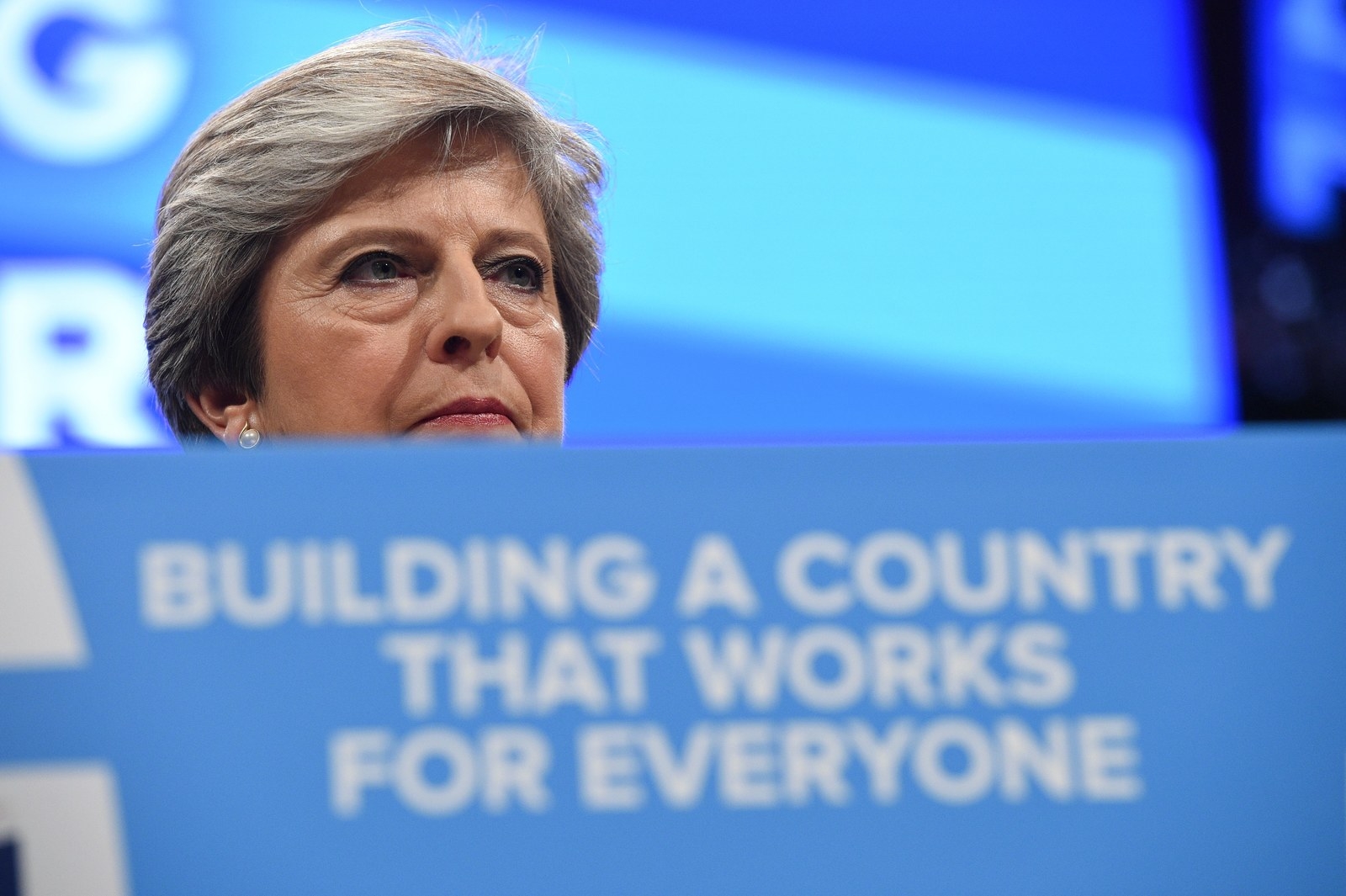
Theresa May has promised to dedicate her premiership to fixing the housing crisis so that more young people can live the "British dream".
Her speech to the Conservatives' annual conference in Manchester on Wednesday was overshadowed by an interruption from a comedian and a prolonged coughing fit, but there were several policy announcements.
In a bid to turn around the party's increasing unpopularity with voters under 40, May announced the government will put another £2 billion into affordable housing, raising the total affordable housing budget to £9 billion.

Councils as well as housing associations will be able to bid for the money, the prime minister said, "getting government back into the business of building houses".
Admitting that too many people have been shut out of the housing market because the UK hasn't build enough homes in the last 40 years, May said she would take "personal charge" of the government's work in this area. The Tories had already announced this week that they'll make another £10 billion available to help people get deposits to buy houses through the Help to Buy scheme.
The policy received a cautious welcome. Carolyn Fairbairn from the Confederation of British Industry said: “There is no question that the UK’s housing shortage needs action, not only to help people in communities across the country, but also for businesses to attract and retain workers. Strong, decisive intervention alongside the UK’s many world-class homebuilders is the key. The prime minister has called on business to respond and get building; she will get the answer she has asked for."
Shelter: “All new money is welcome but...with over 1.2m households on waiting lists this is only fraction of long-term investment required."
“We have long called for the state to use its balance sheet to make a direct contribution to housebuilding. The prime minister’s announcement of £2 billion for this purpose is an important first step,” said Adam Marshall, head of the British Chambers of Commerce.
May's other big announcement was a cap on household energy prices. Draft legislation will be introduced next week to "bring an end to rip-off energy prices once and for all," the prime minister said.
Energy bills are too high and the market isn't working for ordinary people. We will bring forward legislation to ca… https://t.co/2PbZ2M9Jjo
10 Downing Street has been under pressure from backbench Tory MPs to do something about rising energy costs, which have been hurting the "just about managing" families that May had pledged to help when she became prime minister last year.
The cap is similar to the policy floated by Ed Miliband when he was Labour leader in 2015, which the Tories ridiculed at the time as an unjustified government intervention. Labour, under Jeremy Corbyn, has now gone further, saying it will nationalise the energy industry.
Martin Lewis, founder of the website MoneySavingExpert.com, said: “It’s a national disgrace that a struggling 90-year-old granny pays substantially more to boil a kettle than an affluent web-savvy man like me. However, a price cap done wrong can do more harm than good.”
One politician pointed out the idea wasn't exactly new.
cough..I am sure I've have heard this somewhere before. https://t.co/oay7AgZD3C
She also promised to make it easier for people to get organ transplants, by changing to presumption in favour of organ donation.
A welcome announcement that the Gov will move to an opt-out organ donation system after Labour committed to it last week #CPC17
Around 500 people died last year because suitable organs weren't available, and there are 6,500 people on the waiting list for transplants, May said. People from black and minority ethnic backgrounds are disproportionately affected.
May's change of direction comes after Jeremy Corbyn said last week at the Labour conference that he'll change the law to opt-in if elected.
May said she's today launched an independent review of the mental health legislation, responding to criticism that the 30-year-old law is allowing too many people to fall through the cracks.

The review will be led by Sir Simon Wessely, a professor of psychological medicine at King's College London.
Free schools will be extended, with another 100 built every year until 2022, May said. That was a commitment in the Tories' election manifesto.

May confirmed an announcement earlier in the week that she'll review university funding and student loans, and will freeze tuition fees at £9,250.

Young people have been taking on debt "and if we're honest, some don't know what they get from it in return," May told the conference. "We have listened and we have learned."
May defended capitalism from Corbyn's criticism and promised that the Conservatives would "defend free and open markets with all our might". But, as some people pointed out, that didn't exactly seem to square with energy price caps and a new government-backed housebuilding programme.
May speech began with praise for free markets. Finishes with price controls on energy, state subsidies for housing + reform of tuition fees
The Institute of Directors, a lobby group, said the conference had been a big disappointment for businesses. Stephen Martin, its director general, said: “On the one hand you have a Labour party which has decided that business is the bad guy; on the other you have a Conservative party which talks about the importance of markets, but then tinkers around with Help to Buy and energy price caps. What are business leaders meant to make of it all?”
